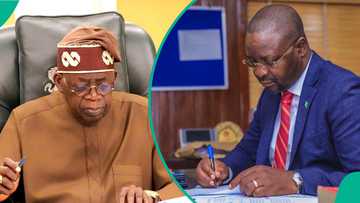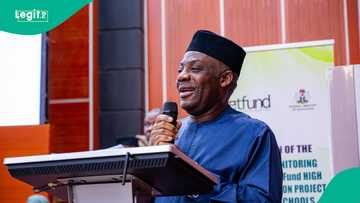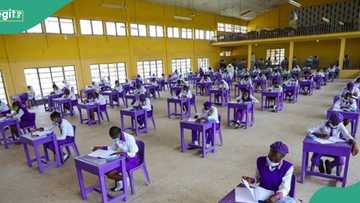WAEC, Disinformation, and the Redemption of Exam Integrity in Nigeria
Editor’s note: In this piece, Lekan Olayiwola details how a forged WAEC statement and hidden exam outcomes sowed chaos. The policy analyst explains how WAEC’s lack of clarity allowed fear to outpace facts.
Following the 2025 WASSCE announcement, Nigeria’s education system was thrust into a digital inferno, not by error alone, but by engineered deceit. A forged press release, complete with fabricated signatures and directives, claimed WAEC had cancelled results for over 100 schools.
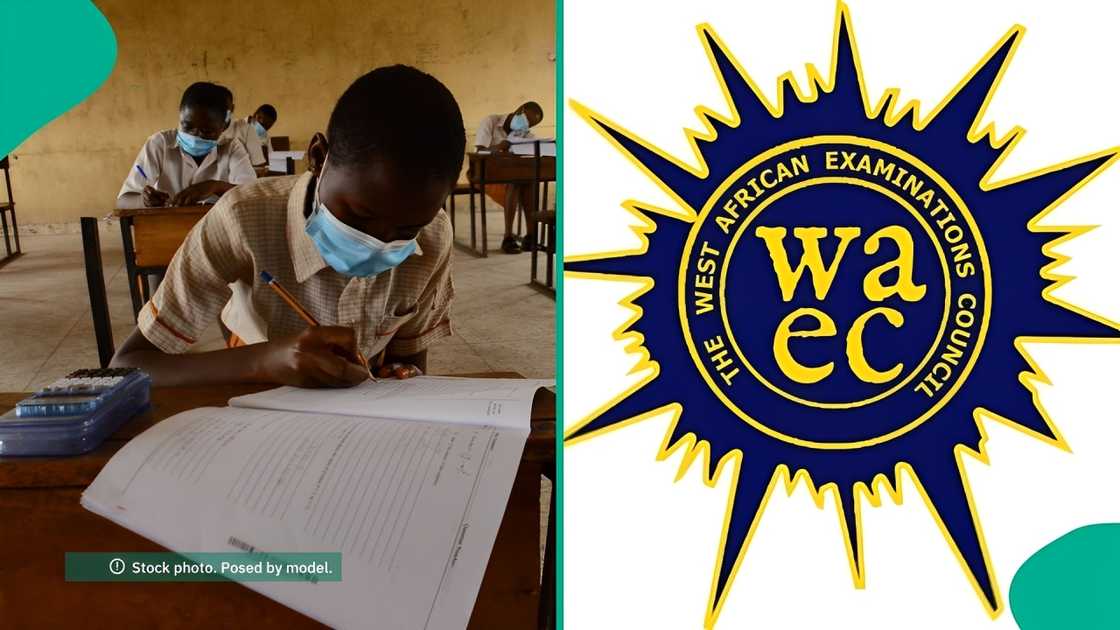
Source: Getty Images
It spread like gospel across WhatsApp, Telegram, and Facebook. WAEC’s rebuttal came too late. The lie had already metastasised. When Nigeria’s civic trust collapses, our institutions are not ready.
Opportunists exploit WAEC silence to spread panic
It was a precision strike on public confidence. And it succeeded because WAEC, like many Nigerian institutions, has not yet learned how to speak in moments of uncertainty. A technical glitch in its result-checking portal, triggered by server overload and the rollout of a new “paper serialisation” system, led to temporary withdrawals.
Simultaneously, WAEC withheld 192,089 results due to suspected malpractice, a legitimate move, but delivered without clarity or compassion. Into that silence stepped opportunists, armed with forged documents and viral panic.
Silence and leaks fuel WAEC credibility crisis
Disinformation thrives where institutions fail to narrate their own truth. And this year, WAEC’s silence became a scaffold for sabotage. The Nigeria Union of Teachers (NUT), Lagos chapter, accused WAEC of complicity in exam leaks, alleging the council failed to shut down known question-sharing websites. If true, this points to internal betrayal, a breach of integrity from those meant to protect it.
The forged list of 151 schools was traced to encrypted messaging platforms, where anonymous users shared it not for truth, but for clout. In Nigeria’s digital economy, panic is profitable. There’s a growing belief among disenfranchised youth that education is a scam. Discrediting WAEC feeds this narrative, turning misinformation into a rebellion born not of malice, but of abandonment.
Lagos as epicentre, Nigeria as casualty
The geography of the hoax is no accident. Over 60% of the schools listed were based in Lagos, including elite institutions like Atlantic Hall and Corona Secondary School. The forged directive to report to WAEC’s Lagos Zonal Office suggests the hoax was crafted with Lagos as its launchpad, a city symbolic of both educational aspiration and institutional fragility.
From Lagos, the lie spread with surgical speed, reaching Ondo, Abuja, Onitsha, and beyond. It moved faster than truth, louder than fact, and deeper than rebuttal. In a country where low-tier blogs and unverified platforms often outpace official communication, truth is no longer self-evident. It must be defended.
Local blogs and micro-influencers played a pivotal role in amplifying the hoax. Some reposted the forged directive without verification, and others added sensational headlines to boost engagement. In the race for clicks, civic responsibility was abandoned. The media ecosystem — especially its informal wing — became a vector for institutional sabotage.
What West Africa gets right, Nigeria doesn’t
Across the sub-region, WAEC operates in multiple jurisdictions. But Nigeria’s handling of exam integrity stands out, but not in a good way.
In Ghana, the Ministry of Education and civil society groups like LEAD Impact Foundation have adopted a zero-tolerance stance on malpractice.
Ahead of the 2025 WASSCE, Ghana’s deputy minister for Education publicly warned that any staff caught aiding cheating would face dismissal and prosecution. Surveillance was intensified, and the Ghana Education Service issued daily integrity bulletins to students and schools.
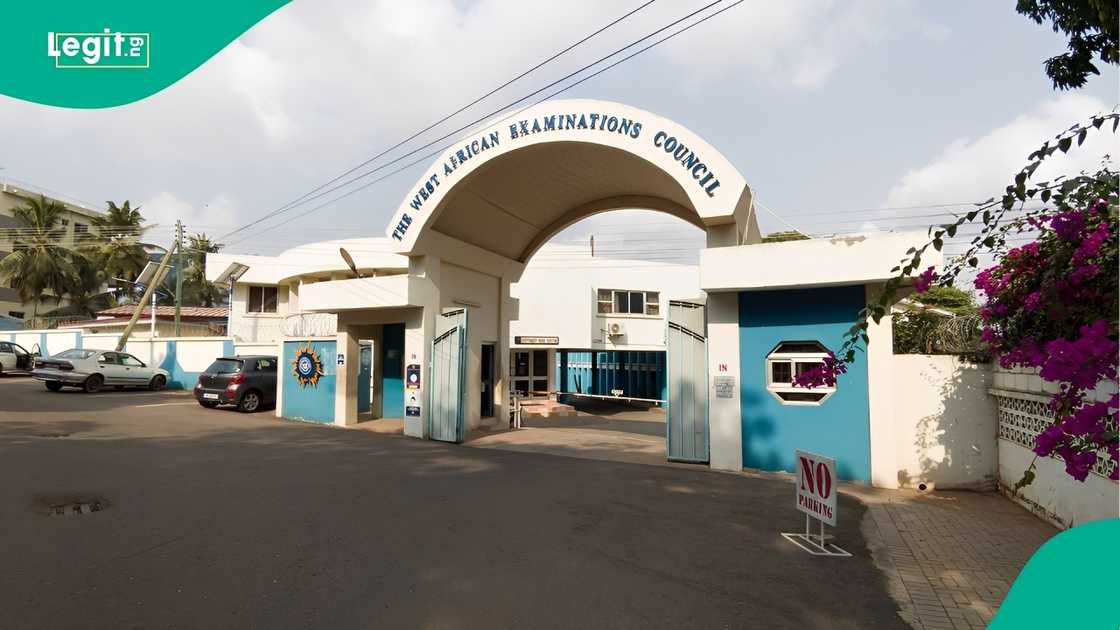
Source: Twitter
In Sierra Leone, WAEC faced internal sabotage, but the response was swift. The Anti-Corruption Commission indicted two senior WAEC officials for grade manipulation and abuse of office.
Principals across the country, under the Coalition for Principals’ Solidarity, threatened a boycott unless WAEC reformed its operations. Their demand: transparency, accountability, and an end to systemic failure.
In Liberia, WAEC partnered with the Ministry of Justice to prosecute exam offenders. The Head of WAEC Liberia, Dale Gbotoe, issued public warnings and coordinated with national security to protect exam centres.
The government subsidised exam fees for over 53,000 candidates — a gesture that reinforced trust and inclusion.
In The Gambia, WAEC maintains a low-profile but high-integrity approach. Its national office publishes examiner reports, maintains a press release archive, and engages directly with schools through structured feedback loops.
Nigeria, by contrast, has relied on reactive apologies and opaque processes. The technical glitch in WAEC’s portal was acknowledged, but not explained.
The withheld results were announced, but not contextualised. And the fake news was debunked, but not investigated. This is not just poor communication. It is institutional negligence.
What must be done publicly
This is not just a WAEC problem. It is a national emergency. To restore civic trust, Nigeria must move from reactive denial to proactive architecture. WAEC must partner with cybersecurity experts to trace the origin of forged documents and prosecute offenders.
The Ministry of Education must launch a real-time misinformation tracker, capable of debunking viral claims before they metastasize.
Students must be trained as digital citizens, not just exam candidates equipped to interrogate, not just consume. And WAEC must adopt a public-facing transparency dashboard, showing withheld results, investigation timelines, and resolution status.
But reform alone is not enough. Narrative must become policy. Institutions must learn to speak with clarity, empathy, and urgency, especially in moments of doubt. Silence is no longer neutral. It is complicit.
And beyond national reform, Nigeria must push for regional standardisation. ECOWAS and the African Union’s education bodies must convene to establish WAEC integrity protocols across member states, ensuring that malpractice, misinformation, and institutional silence are addressed with continental urgency.
The civic cost of uncertainty
When students cannot trust their results, they cannot trust their futures. And when futures are uncertain, democracy itself begins to wobble. WAEC’s disinformation crisis is not an isolated failure. It is a mirror — reflecting the fragility of Nigeria’s civic architecture. If left unaddressed, it will continue to erode the social contract between young Nigerians and the state.
Truth must not be a luxury. It must be a civic right. And in the battle for that right, Nigeria must choose courage over comfort, clarity over silence, and reform over reputation.
Lekan Olayiwola is a public-facing peace & conflict researcher/policy analyst focused on leadership, ethics, governance, and political legitimacy in fragile states.
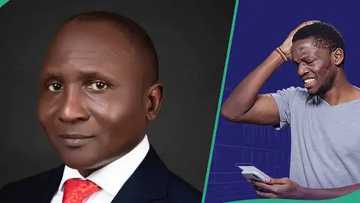
Read also
WASSCE 2025: Nigerians fire back at WAEC over portal glitch, question credibility of results
Disclaimer: The views and opinions expressed here are those of the author and do not necessarily reflect the official policy or position of Legit.ng.
Proofreading by Funmilayo Aremu, copy editor at Legit.ng.
Source: Legit.ng


